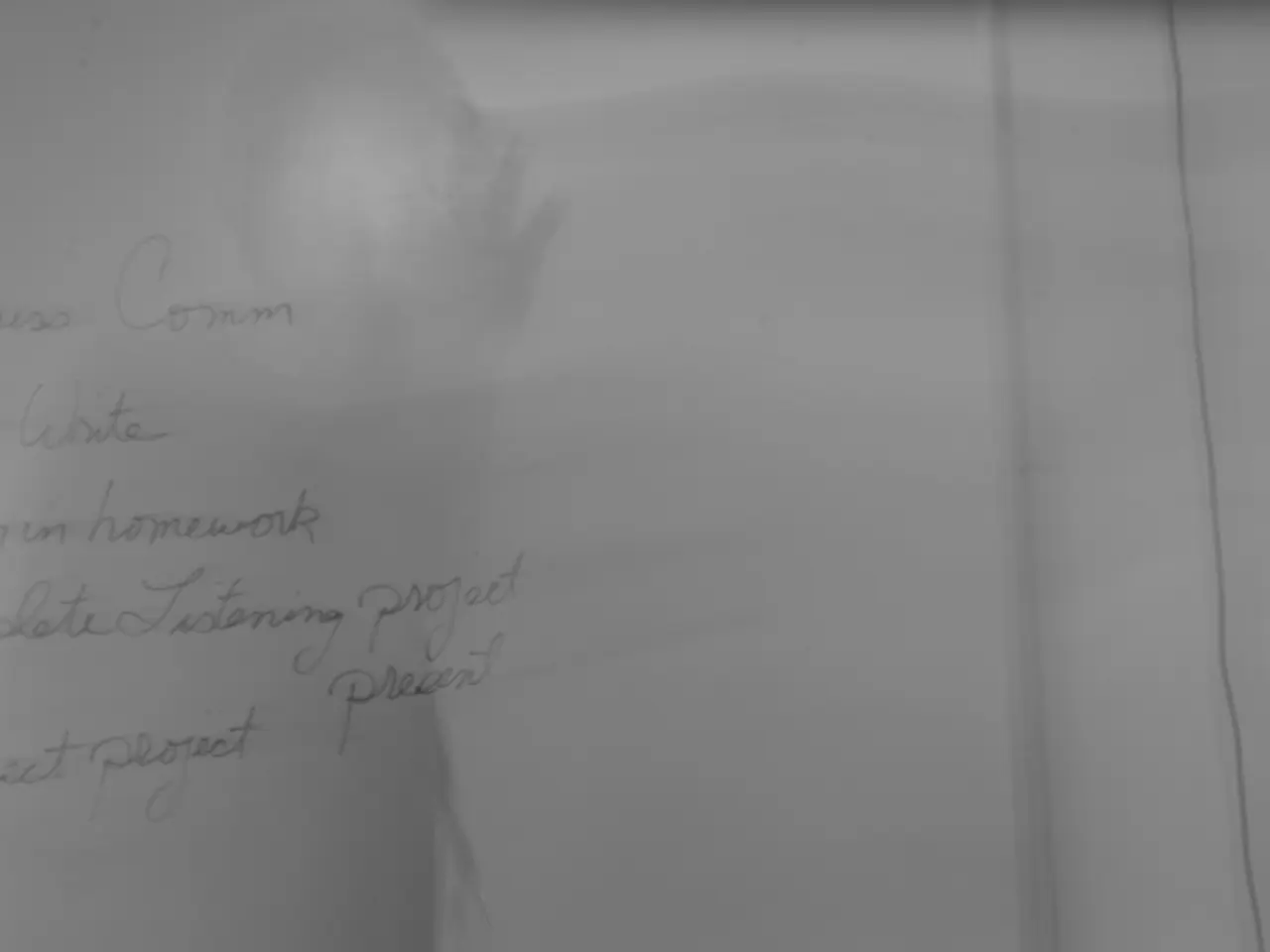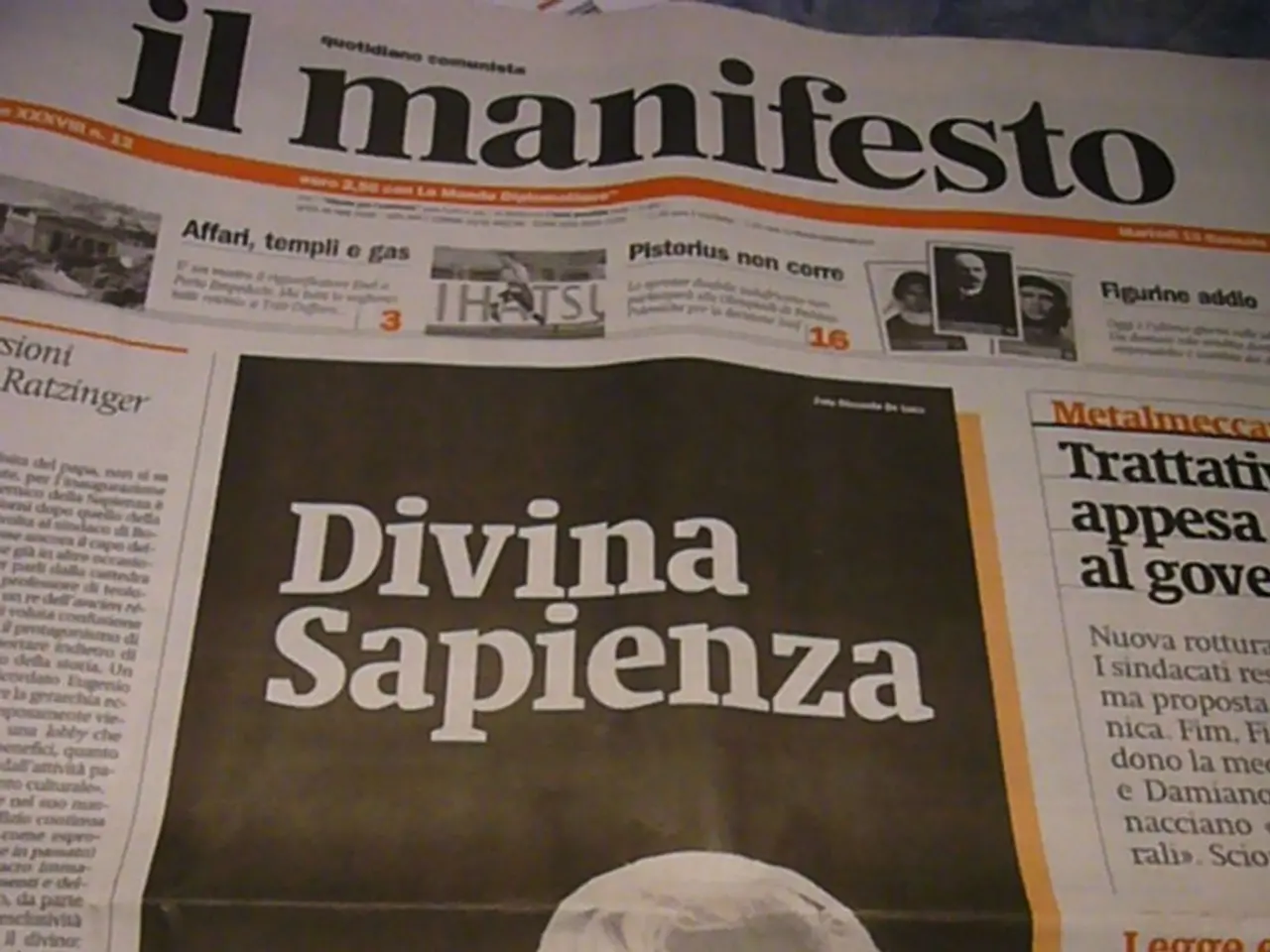Board member issues caution on prompt increases in interest rates at Bank of Japan
In the complex landscape of global trade, the impact of U.S. tariffs on Japan's economy and the Bank of Japan's (BoJ) monetary policy decisions in 2025 are causing ripples.
**Challenges for Japan's Economy**
The 25% U.S. import duty on Japanese cars poses a significant threat to Japan’s export-driven economy. This tariff, if persistent, could slow down Japan’s growth and potentially push the country into a recession. However, large Japanese companies have shown surprising resilience in the second quarter of 2025, as indicated by the Bank of Japan’s Tankan survey, which showed an improvement in business sentiment among large manufacturers.
The broader context of U.S. tariffs also leads to a reduction in overall global trade growth, impacting Japan and the world economy.
**Impact on the Bank of Japan’s Monetary Policy**
The derivatives market expects the BoJ to raise its overnight interest rate in 2025, reflecting a potential shift from the ultra-loose monetary policy stance traditionally held by the BoJ. This shift could be influenced by inflationary pressures and external economic shocks such as tariffs.
However, the strong yen seasonally in July, combined with ongoing trade negotiations with the U.S., has influenced the BoJ’s policy decisions. If negotiations improve and tariffs are removed, the yen could strengthen further, impacting inflation and export competitiveness.
**New Appointments at the BoJ**
The BoJ's new board member, Kazuyuki Masu, has emphasized the need for the bank to tread cautiously in rolling back its massive stimulus. Masu, a former chief financial officer of trading house Mitsubishi Corp., replaced Toyoaki Nakamura, a perceived dovish member of the BOJ's board. Masu has reinforced market views that U.S. tariffs will keep the BoJ in a holding pattern for the time being.
Junko Koeda, an academic known as a fiscal and monetary hawk, was appointed in March, replacing another dovish member. Koeda's appointment is seen as tipping the board increasingly in favor of slow but steady rate hikes.
Despite these challenges, Governor Kazuo Ueda has put rate hikes on hold until there is more clarity over the impact of U.S. tariffs. The BOJ exited a radical stimulus programme in March last year and has raised interest rates twice since then. Currently, interest rates stand at 0.5%.
In conclusion, U.S. tariffs pose significant challenges for Japan, especially in the automotive sector, with potential risks of recession. However, Japanese industry sentiment remains relatively optimistic, and the BoJ is responding to these external pressures and domestic conditions by considering monetary tightening to manage inflation and economic stability amid these uncertainties.
[1] IMF World Economic Outlook Update, April 2025 [2] Reuters, "Japan's Masu says U.S. tariffs keep BOJ in holding pattern," June 1, 2025 [3] Nikkei Asia, "Japan's big business sentiment improves in Q2 survey," May 15, 2025
The U.S. tariffs on Japanese cars and other goods pose a threat to Japan's export-driven business sector, potentially slowing down Japan's growth and even triggering a recession. In light of these challenges, the Bank of Japan (BoJ) is considering monetary tightening to manage inflation and ensure economic stability, while also responding to the ongoing negotiations with the U.S. regarding tariffs.





